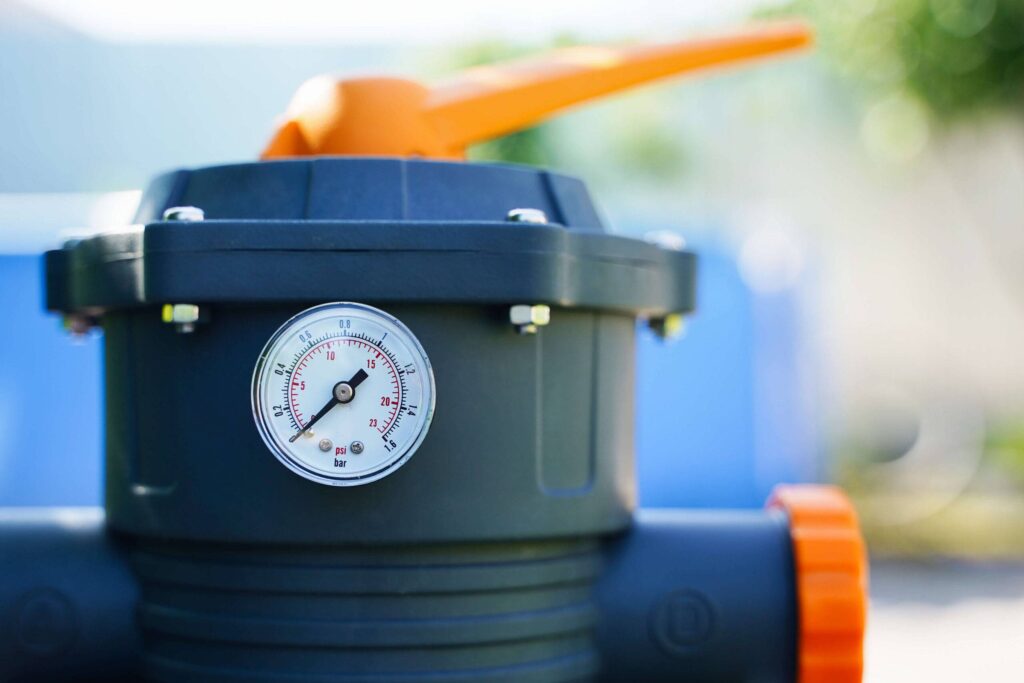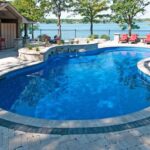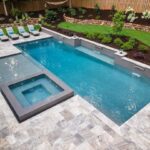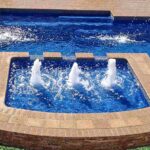
Heat Pump vs. Gas Heater. Which Is Better for Your Pool?
Warming your pool is a terrific way to extend your swimming season and make the experience more enjoyable for the whole family. However, you may have become perplexed about how to proceed along the way. When you go to a pool supply store, you’ll be asked, “Gas-fired heater or heat pump?”
You may have been caught off guard by the simple urge to heat your pool. Don’tDon’t lose any sleep over that. I am confident that in the time it takes you to read this article, we will be able to assist you in making the best pool decision possible.
Consider the following aspects before deciding on which sort of heater you require:
- What is the size of the pool or spa in gallons?
- Is it crucial how long it takes to heat the pool water?
- What is the weather like where you are right now?
- In your area, how much does gas cost versus electricity?
- Is there a gas line already in place?
- What else are you willing to spend to heat the water in your pool?
- How often would you like the pool to be heated during the week?
The manufacturer’s reputation and the time they’ve been in business.
It isn’t one of those situations where one is superior to the other, regardless of the details.
A heat pump and a gas-fired heater are made differently, work differently, and use substantially different amounts of energy. You can learn which type is ideal for you by learning the distinctions.
To begin with, gas heaters are the most popular choice for pool owners and have been around longer than pool heat pumps. They are helped fuel by either natural or propane gas and are the most popular choice for pool owners.
Swimming pool heaters are most effective when used for brief periods. They are ideal for quickly heating a pool and water faster than other heating methods. Natural gas or propane gas heaters can keep water at a constant temperature regardless of the weather.
A quick search for pool heating options reveals that gas heaters outnumber heat pump models by a wide margin. Whenever you decide to use a pool heater, you must decide whether to use natural gas or liquid propane. As a result, you must consider the availability and cost of gas and whether or not a gas line is already in place. Gas heaters must also be refilled and connected to a propane tank. Your location’s availability and gas and propane costs should determine your fuel choice.
Its Pros
- The purchase price is less than that of a heat pump.
A gas heater will cost roughly half the price of a heat pump, depending on the size of your pool.
- Keep the temperature of the water Consistent in Any Climatic changes.
The heat production for your pool by Gas Heaters is not dependent on the outside temperature. Is it cool outside? There are no issues with a Gas Heater.
- Quickly heat up.
Gas Heaters, unlike Heat Pumps, can raise water temperatures with even the biggest pools in a short time. Traditional gas heaters are ideal for “weekend warriors” because they allow you to delay turning on the heat for a short period.
- Installing may be less expensive.
Many gas heaters are less expensive to install than electric heaters, depending on the circumstances (distance of your pool from your house, availability of natural gas lines to your home, etc.).
Its Cons
- It consumes more energy and costs more to continue operating.
Because of their inherent inefficiency, gas heaters will cost you significantly more to operate. True, Gas Heaters heat water quickly but consume more energy, resulting in higher operating costs.
- Unit Life Spans are becoming shorter.
Because of the high heat lost inside that unit and the more significant number of moving parts, you can expect a gas unit to require repairs more frequently and fail earlier than most heat pumps.
- Tanks or lines are necessary.
This may be the best option if you already have natural gas service flows to your home (remember that most heaters have the chance of coming as propane or natural gas units). You’llYou’ll need to run a gas line to your pool (and have it sunk in), or you’ll need one of those enormous propane tanks in your yard (not the most attractive sight) that will need to be done carefully regularly.
Heat pumps for pools are a cost-effective and ecologically friendly way to heat a pool. These pumps can save pool owners money in the long run because they typically have lower annual operating costs than Gas Heaters and can last up to ten years or more with proper maintenance.
They run on electricity and work in the opposite direction of an air conditioner. These heat pumps extract and compress heat with the outside air rather than producing it. Such is relatively new to the apartment buildings’ pool landscape and is not as common, particularly in northern climatic regions.
The ambient air outside should be 45°F or higher for a heat pump to function correctly. This pool heating method may be ideal for people or companies who use their pool in warm temperatures or live in hotter areas during winter.
Its Pros
- Less energy in use for more extended periods/lower operating costs.
Heat Pumps are highly efficient, converting the majority of energy to heat. This means that most pool owners spend significantly less to keep the same temperature for an extended period. Even though they use electricity and appear expensive at first glance, their operating prices are reduced.
- Will frequently outlast Gas Heaters.
These Heat Pumps, by definition, have few moving parts and, due to their “low and slow” operation, will experience less wear and tear. This means that they have a longer lifespan than Gas Heaters. There will also be fewer repairs.
- Eco-Friendly.
Heat Pumps, unlike Gas Heaters, emit no carbon dioxide and consume far less energy, making them a more environmentally-friendly choice.
Its Cons
- Warm-up Time Reduced
Usually, Heat Pumps are long-distance runners, not sprinters like Gas Heaters, which means they won’t work well if you expect to turn them on to warm up the pool for the weekend after leaving them off for days.
- Electrical Installation Could Be More Expensive
Heat pumps necessitate a 220-volt provider, which may require a higher installation cost due to tripping panel accessibility and pool distance.
- Acquisition Costs More Than a Gas Heater
Even though Heat Pumps are becoming more affordable, their initial purchase price is significantly higher than that of most Gas Heater choices.
Conclusion
Finally, the best option for your pool is just what is best for you and your situation. Once again, there is no one-size-fits-all solution for everyone, but there are better options based on your wants and needs for your Swimming pool.
PoolForce understands that every detail of your project is essential. Once we finish mending your pool, we want you to be complete satisfaction with it. We want it to be where you can make memories that will last a lifetime.
We eagerly await your response. Check out our other blogs as well; we have a lot to offer in pool knowledge.
Which one do you prefer? Let us know in the comments.












